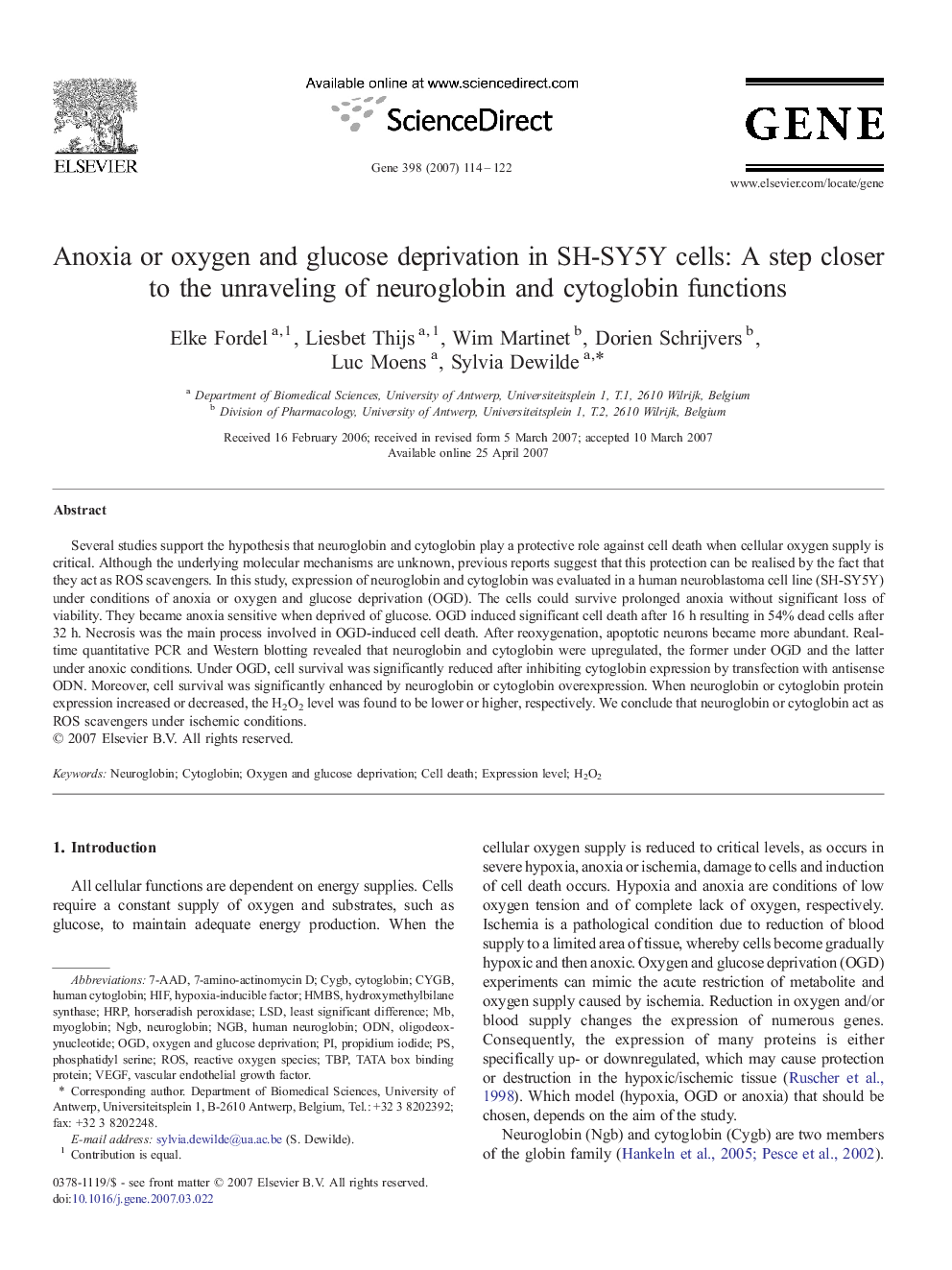| Article ID | Journal | Published Year | Pages | File Type |
|---|---|---|---|---|
| 2819647 | Gene | 2007 | 9 Pages |
Several studies support the hypothesis that neuroglobin and cytoglobin play a protective role against cell death when cellular oxygen supply is critical. Although the underlying molecular mechanisms are unknown, previous reports suggest that this protection can be realised by the fact that they act as ROS scavengers. In this study, expression of neuroglobin and cytoglobin was evaluated in a human neuroblastoma cell line (SH-SY5Y) under conditions of anoxia or oxygen and glucose deprivation (OGD). The cells could survive prolonged anoxia without significant loss of viability. They became anoxia sensitive when deprived of glucose. OGD induced significant cell death after 16 h resulting in 54% dead cells after 32 h. Necrosis was the main process involved in OGD-induced cell death. After reoxygenation, apoptotic neurons became more abundant. Real-time quantitative PCR and Western blotting revealed that neuroglobin and cytoglobin were upregulated, the former under OGD and the latter under anoxic conditions. Under OGD, cell survival was significantly reduced after inhibiting cytoglobin expression by transfection with antisense ODN. Moreover, cell survival was significantly enhanced by neuroglobin or cytoglobin overexpression. When neuroglobin or cytoglobin protein expression increased or decreased, the H2O2 level was found to be lower or higher, respectively. We conclude that neuroglobin or cytoglobin act as ROS scavengers under ischemic conditions.
